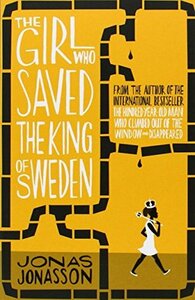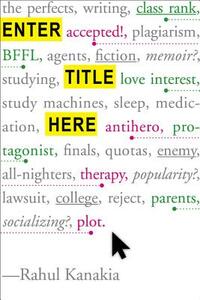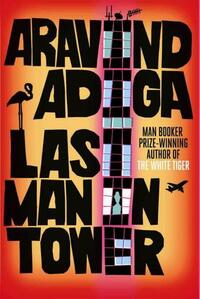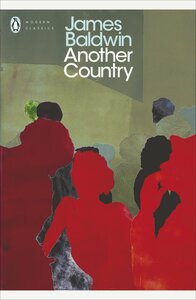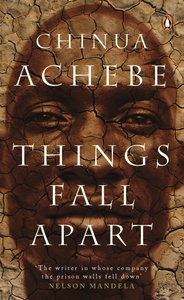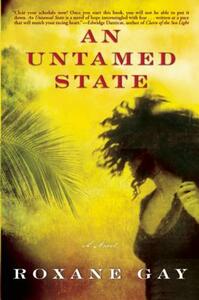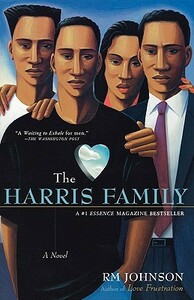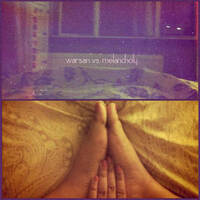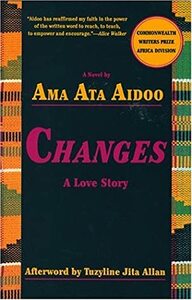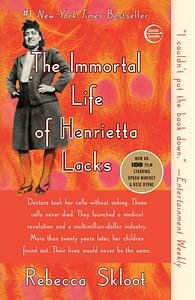Take a photo of a barcode or cover
introvertinterrupted's Reviews (1.08k)
I gave this book four stars not because I was head over heels in love with it, but because it lead me to have profound thoughts about the condition of humanity. While this book was required reading for me in generaladuate school, there were many times when I wanted to throw it clear across the room out of frustration and anger at the characters' actions.
For a full review, visit my blog, ...On The Shelf.
For a full review, visit my blog, ...On The Shelf.
These poems come in audio form, but after listening to Warsan Shire recite them aloud, I had to go onto Google and find hard copies to really sit down and grasp what she was saying.
My favorite poems were:
-"for women who are difficult to love (the affirmation)" [of course 🤓]: I like how this poem speaks to the strength of being "untamable." It's a given that you won't be loved by everyone, but the beauty lies in knowing that that's okay and being able to pick yourself up and collect your love to move on and find someone who will love you for what you're being to the table. This is a singular theme that's woven throughout Shire's audio collection and that she seems to wrestle with in her other selections as well.
-"questions for the woman I was last night -(the honest conversation):" This poem reminded me of a sermon I heard at Imagining the Body of Christ church in Dallas, TX when I visited my best friend earlier this month. There, the preacher asked us the pivotal question of "who dropped us?" in reference to unpacking the misfortune of Ziba in 2 Samuel 9: 1-13/5 where he had us exploring the idea that we all have been hurt in the past and this hurt can often times take root and damn us to stand in one place clutching onto our pain without us even knowing that we're standing still until we run up on someone who does us so much harm that the pain demands that we stop and ask ourselves, "how did I get like this and WHY am I allowing myself to be treated this way?" Shire takes this concepts and cuts down to the soul of her reader and holds up a mirror forcing you to ask yourself some hard questions about what you're allowing to happen to you.
-"the unbearable weight of staying - (the end of the relationship):" This poem has my absolute favorite lines from the collection, which is, "I think of lovers as trees, growing to and from one another, searching for the same light....This is all I know how to do, carry loss around until I begin to resemble every bad memory, every terrible fear, every nightmare anyone has ever had." #Breathtaking
Those are just a few, but I definitely recommend this collection to anyone who wants to hear some good spoken word poetry. Here is the link to purchase the collection:
Warsan Shire's Bandcamp website
My favorite poems were:
-"for women who are difficult to love (the affirmation)" [of course 🤓]: I like how this poem speaks to the strength of being "untamable." It's a given that you won't be loved by everyone, but the beauty lies in knowing that that's okay and being able to pick yourself up and collect your love to move on and find someone who will love you for what you're being to the table. This is a singular theme that's woven throughout Shire's audio collection and that she seems to wrestle with in her other selections as well.
-"questions for the woman I was last night -(the honest conversation):" This poem reminded me of a sermon I heard at Imagining the Body of Christ church in Dallas, TX when I visited my best friend earlier this month. There, the preacher asked us the pivotal question of "who dropped us?" in reference to unpacking the misfortune of Ziba in 2 Samuel 9: 1-13/5 where he had us exploring the idea that we all have been hurt in the past and this hurt can often times take root and damn us to stand in one place clutching onto our pain without us even knowing that we're standing still until we run up on someone who does us so much harm that the pain demands that we stop and ask ourselves, "how did I get like this and WHY am I allowing myself to be treated this way?" Shire takes this concepts and cuts down to the soul of her reader and holds up a mirror forcing you to ask yourself some hard questions about what you're allowing to happen to you.
-"the unbearable weight of staying - (the end of the relationship):" This poem has my absolute favorite lines from the collection, which is, "I think of lovers as trees, growing to and from one another, searching for the same light....This is all I know how to do, carry loss around until I begin to resemble every bad memory, every terrible fear, every nightmare anyone has ever had." #Breathtaking
Those are just a few, but I definitely recommend this collection to anyone who wants to hear some good spoken word poetry. Here is the link to purchase the collection:
Warsan Shire's Bandcamp website
I gave this book a 4.5 stars.
I found that this novel was a lesson in love for me. Aidoo presents us with the story of Esi, a Ghanain woman who has been thoroughly educated about the world but, not about love.
Esi's character reads like a modern soap opera about a woman who has grown tired of her neat marriage and has started to crave adventure even though Esi herself labels this longing as a desire to not be under the thumb of any man especially, her husband, Oko, who she sees as a mama's boy who is looking for a maid opposed to a wife. To rectify this conundrum, Esi decides that she will separate from her husband to live the life that she has always wanted. However, while living this life, she finds a new love interests in Ali, a devout Muslim man who offers her the chance to be his second wife after their torrid love affair. From here many emotional and social problems commence.
Aidoo writes a novel that is full of cultural nods toward the ever present battle between European and African civilizations. Thankfully, none of these nods come off as preachy or as being blatant PSA's on what the "White man has done to us." This novel shapes up to be an intellectual version of chick lit. Well written and persuasive at some points, the novel gives the reader a look into a modern Africa that is not often talked about. The novel is good for anyone who wants to expand their horizons into a broader sphere of world literature without becoming too overwhelmed. I would definitely recommend this novel to anyone who wants a chance to look at postcolonial African cultures or just wants a different type of beach read.
I found that this novel was a lesson in love for me. Aidoo presents us with the story of Esi, a Ghanain woman who has been thoroughly educated about the world but, not about love.
Esi's character reads like a modern soap opera about a woman who has grown tired of her neat marriage and has started to crave adventure even though Esi herself labels this longing as a desire to not be under the thumb of any man especially, her husband, Oko, who she sees as a mama's boy who is looking for a maid opposed to a wife. To rectify this conundrum, Esi decides that she will separate from her husband to live the life that she has always wanted. However, while living this life, she finds a new love interests in Ali, a devout Muslim man who offers her the chance to be his second wife after their torrid love affair. From here many emotional and social problems commence.
Aidoo writes a novel that is full of cultural nods toward the ever present battle between European and African civilizations. Thankfully, none of these nods come off as preachy or as being blatant PSA's on what the "White man has done to us." This novel shapes up to be an intellectual version of chick lit. Well written and persuasive at some points, the novel gives the reader a look into a modern Africa that is not often talked about. The novel is good for anyone who wants to expand their horizons into a broader sphere of world literature without becoming too overwhelmed. I would definitely recommend this novel to anyone who wants a chance to look at postcolonial African cultures or just wants a different type of beach read.
This is a book that EVERYBODY needs to read. The individuals in this books are real life people who have had a grave injustice done to their family. While the content will most likely leave readers feeling a whole range of emotions from sadness to anger, the actual content of this book is something that needs to be read by all people regardless of color, age, or background. While there are parts of the story that seem exploitative (I honestly felt as if Skloot sometimes went into too much detail about different parts of the Lacks' family's dysfunction when describing individuals who are currently living), the overall story of Henrietta Lacks' body being defiled and her cells taken without her or her family's consent all in the name of science is something that everyone should read up on.
